Harbouring opinions on social issues, expressing them, trying to refute others’ opinions or learning to accept them are all acceptable forms of public communication. Clarity, Directness, Sarcasm, Satire, Humour, are all good tools to do so. You can try and convince, or can agree to disagree. But absolutely nothing gives us the right to abuse, judge and insult…
Social media are fantastic, quite literally. It’s stuff from fantasies. A magnificent convergence of information, opinions, creativity, and need for sharing. Networking with people has never been so easy. A great platform for voicing out your concerns uninterrupted, and getting your voice heard by potentially millions of people.
When put like that, it does sound like stuff from fantasies. Because reality is much harsher.
It’s become a magnificent convergence of lies, dogmatism, plagiarism and hidden agenda. Trolling and stalking people has never been so easy. A great platform for abusing your own freedom of expression and others’ too. Sad, but true!
Let’s quickly take a look at some recent hot topics on social media:
- A posts and messages war ensued when a group of university students of dramatics was attacked by politically aligned student organization during their exam production
- A leading female actor being hounded with questions about pregnancy and then trolled for voicing out that she does not want children
- A leading female actor from Marathi Industry trolled for her opinion about wearing Mangalsutra or changing surname after marriage
- A power couple from Bollywood constantly being hounded with speculations of divorce
- Supporters of opposing political parties showing abusive creativity for each other (party leaders and common people alike)
- A cricketer’s wife being blamed for his rough patch in performance
- An actor and his wife being trolled for how they name their son
- A 15-year-old girl from UP who topped the State board exams being trolled for her facial hair
All are subjective matters, in fact some are not just subjective, but very, very private. Such things shouldn’t be anybody’s business. Some may argue that people willingly share everything private on social media and make it everybody’s business. There is some amount of truth in that, to be honest. But if we investigate the cases mentioned above, nobody had shared anything private purposefully. It all began from a regular post / picture / video with simple content.
In fact, in case of the cricketer, the actor’s son, the state board exam topper, the woman who doesn’t want children, the Bollywood couple and in most political debates, ruthless trolling is what made the issues socially accessible and eventually viral. The problems start in the form of trolling, continue as trolling and they never get old! Someone unearths them from time to time to start afresh. The social media archive is bottomless.
Harbouring opinions on social issues, expressing them, trying to refute others’ opinions or learning to accept them are all acceptable forms of public communication. Clarity, Directness, Sarcasm, Satire, Humour, are all good tools to do so. Having different views on something doesn’t have to result in a dirty personal feud. You can try and convince, or can agree to disagree. But absolutely nothing gives us the right to abuse, judge and insult others for having certain opinions, or certain body types, or certain preferences in personal life.
Sadly, we have started treating differences as something to be killed. Today, we advocate racial, sexual and linguistic diversity and inclusion, that’s well as it should be. But at the same time, we cannot tolerate the diversity of thoughts, expression and action. We cannot take an inclusive approach to understand behaviours, we just cannot accept that some people don’t share our opinions, as we consider ours to be the ultimately correct ones.
Some of us obsess over religion. We bring that obsession with us everywhere we go, even to the theatre. It’s possible to find the content wrong, even offensive. It’s perfectly understandable, to voice it out, if, and only if, we care to share our point of view in a civil manner. If we try to set benchmarks by addressing the problem logically. But no, that’s not what we do. We turn violent. We become blind with rage, if we think our believes are challenged. We get ready to kill or die trying when religious points of view don’t match. And we litter our social media handles with this turbid animosity.
We speak of women empowerment, we speak of gender equality, we speak of social change, and still expect women to follow traditional religious practices without fail. Any women using their intelligence to question these traditions are ruthlessly condemned.
We don’t think twice about becoming one of the millions of followers of “kid superstars”, and then suddenly one fine day we think we are given the right to judge them and their parents. We are offering free advices. Having concern for children getting too much social media exposure at too young an age is in fact a sign of a sensitive mind. But expressing that concern in a judgmental tone, using abusive language is exactly the opposite.
Athletes may experience bad patches in their career just like any of us. But blaming their wives or girlfriends for that is wrong on so many levels. It’s chauvinistic, it’s judgmental, it’s a form of misguided hero worship. And additionally, we get extra caustic with our remarks.
We are blaming a woman for not wanting children, because hey, society first!
We are judging a couple for naming their child after a king / successful person they respect. Because hey, religion first!
We are shaming a girl child for having some facial hair over her upper lip. Because hay, looks first! We are commenting, “your academic achievements are good, but why can’t you remove your moustache?” We are essentially undermining her academic achievements and giving her the message “all that matters is how you look”!!! What’s even worse, is that we are not just hurting one innocent mind, we are planting that misogynistic thought in the minds of millions. And they in turn are thinking it’s right, or it’s their right to inflict such damage.
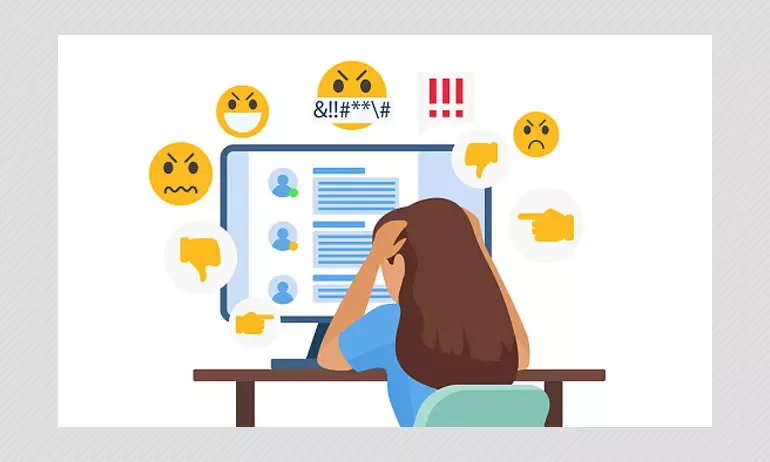 (Harrassed by trolls)
(Harrassed by trolls)
There are anyway so many socio-political factors that divide us. There is religion, caste, financial status, political views and leadership preferences, so on and so forth. On top of that, we let hatred take over. We get very creative with our words and memes while spreading negativity.
What have come down to? Why are we doing this? Is it so difficult to just be nice?
Read Also: द रियल फेस ऑफ फेसबुक इन इंडिया या पुस्तकाचा अनुवाद करताना...(Translating the book "The Real Face of Facebook in India")
The purpose here is not prescribing what to think, nor expressing and imposing opinions. But we need to understand that social media, like science or technology can be both – a boon or a bane. And only the intensions of human minds can determine the course. We need to acknowledge that every one of us needs to sensitize themselves about responsible use of social media. Social psychologists are already conducting awareness and counselling sessions. There are training programmes specifically crafted for this purpose. There is a saying in Sanskrit – Ati Sarvatra Varjayet (अति सर्वत्र वर्जयेत्) It means all extremities must be avoided. It applies perfectly to usage of social media. With reference to quantity, frequency, content, expression and context. In schools, we learn to be “factually correct”. We are made to learn the importance of being “politically correct”. In addition to those two, in the current hostile scenario, we need to learn to be “socially correct” as well. And the key to that is being genuinely nice.
Well, a lot has been said, and a lot more will be said about this. Hope all that is being said, here and otherwise, becomes irrelevant soon. The sooner the better.
Rucha Mulay
ruchamg@gmail.com
(Assistant Editor - English at Sadhana)
Tags: social media social media responsibility sensitivity compassion social tolerance good practice Load More Tags

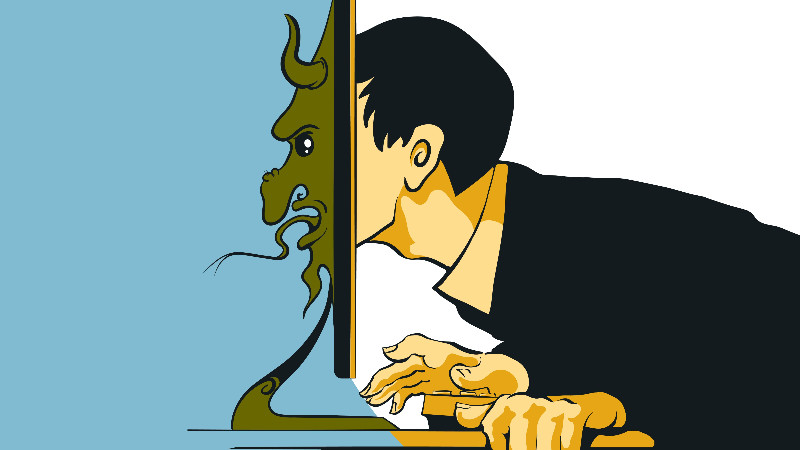

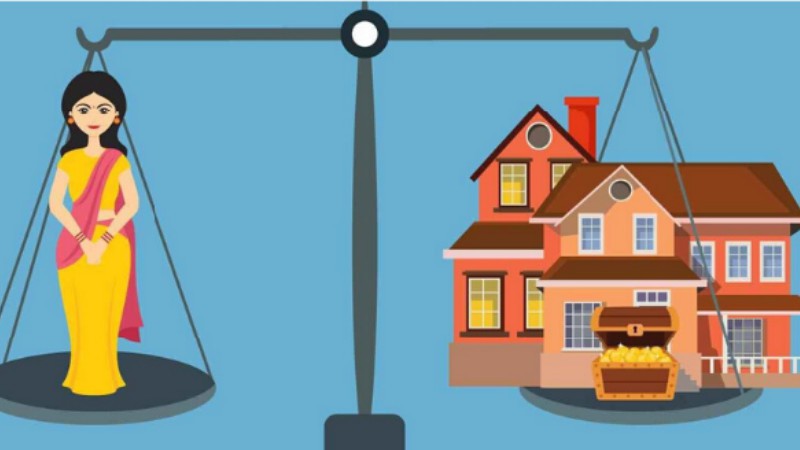

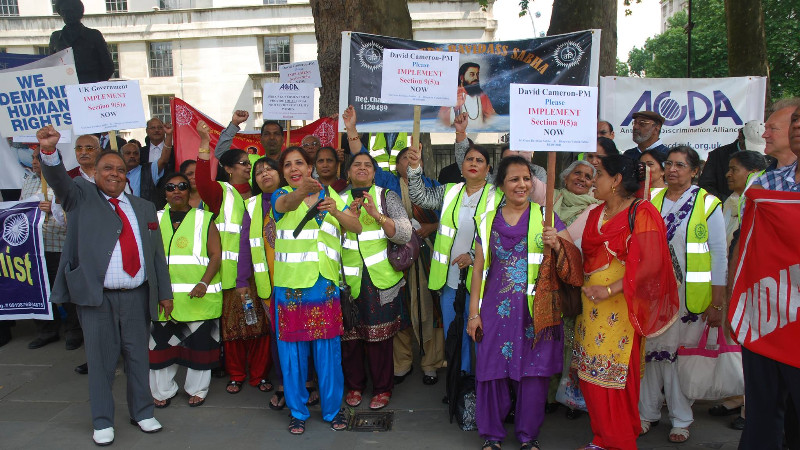

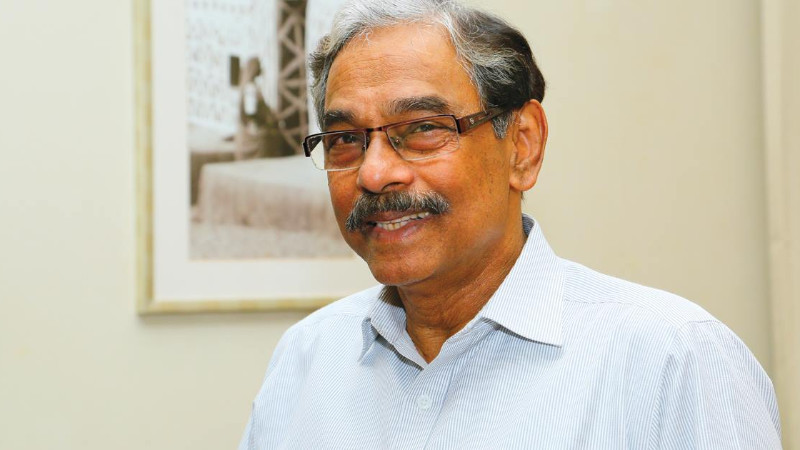
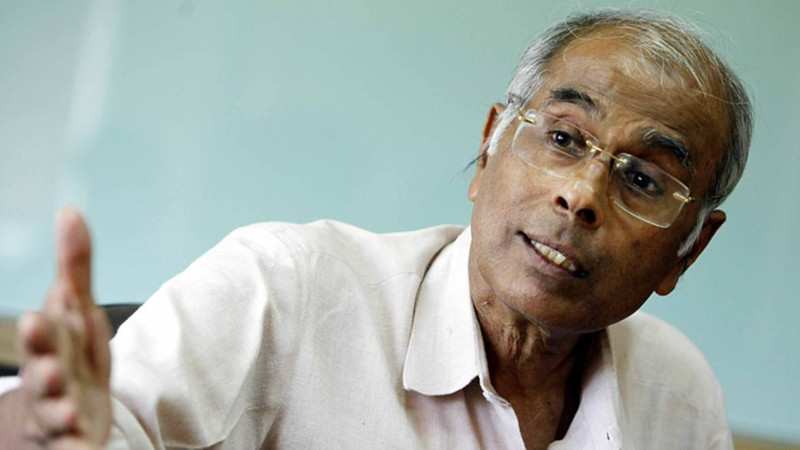
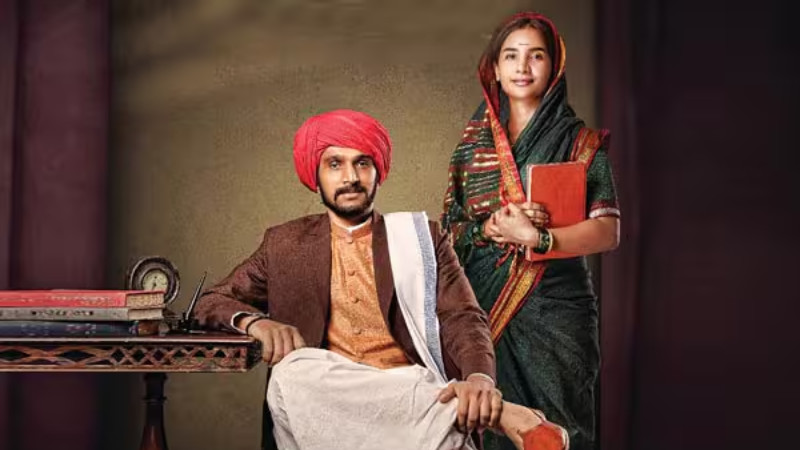
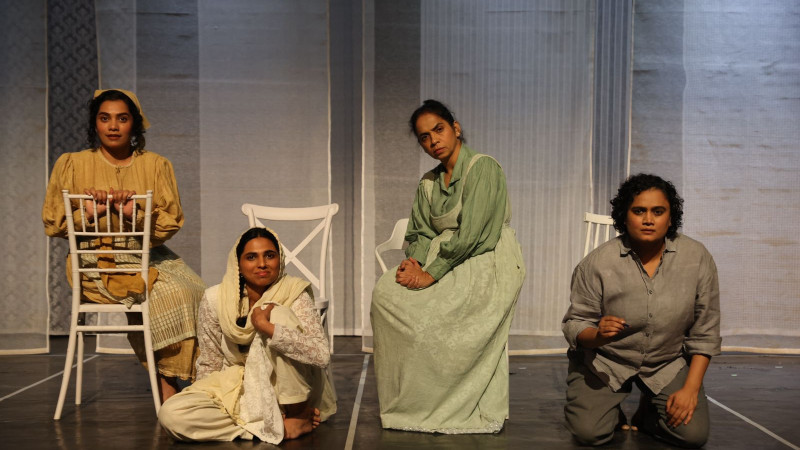

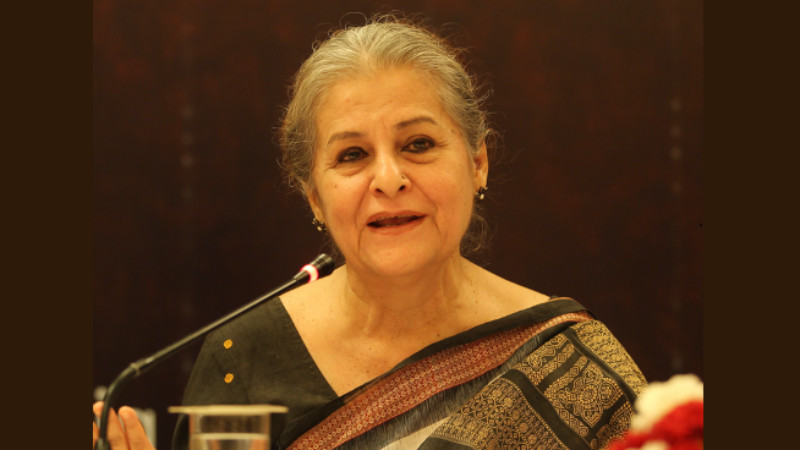
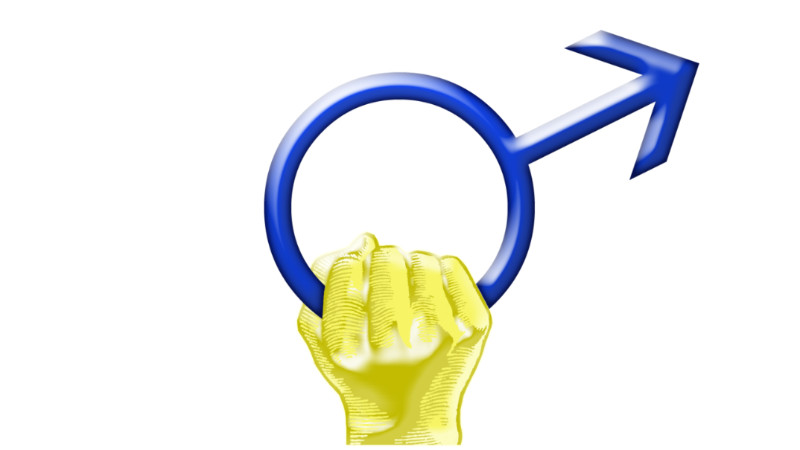



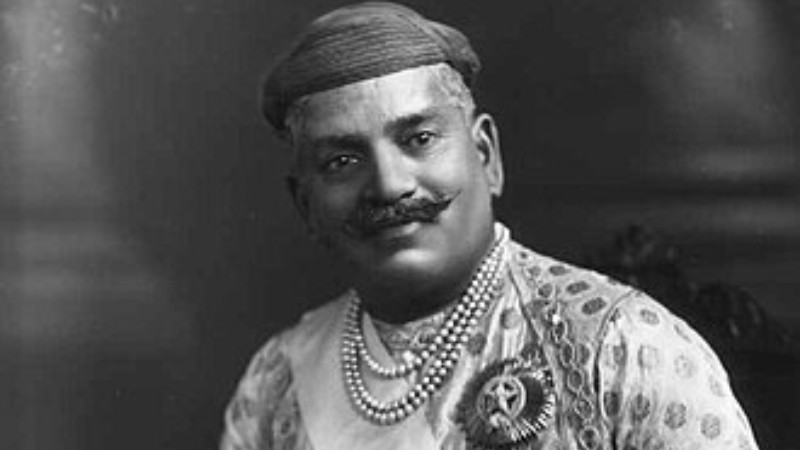



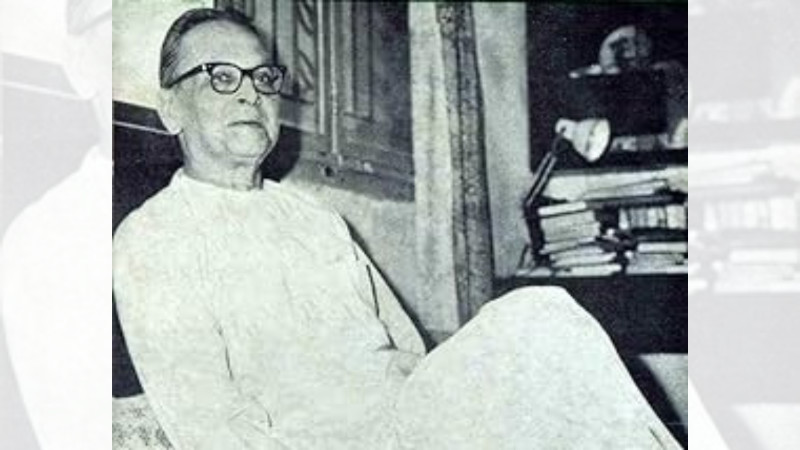
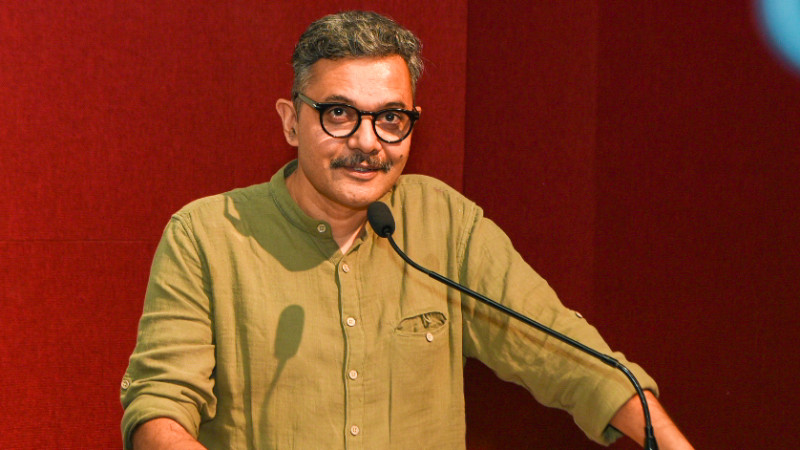
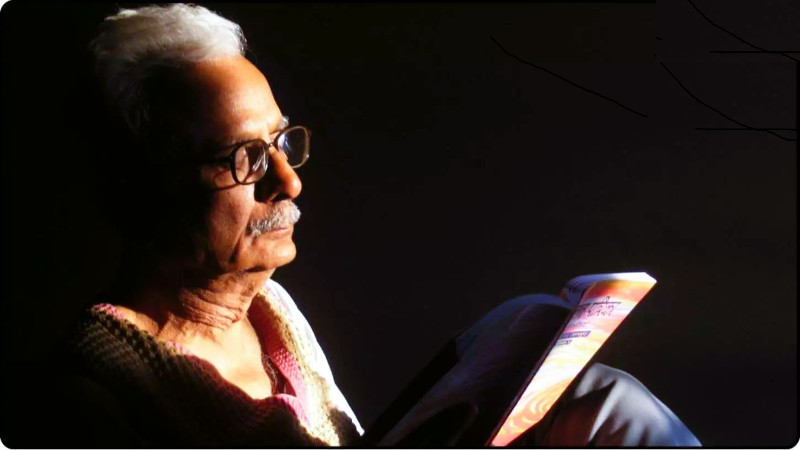

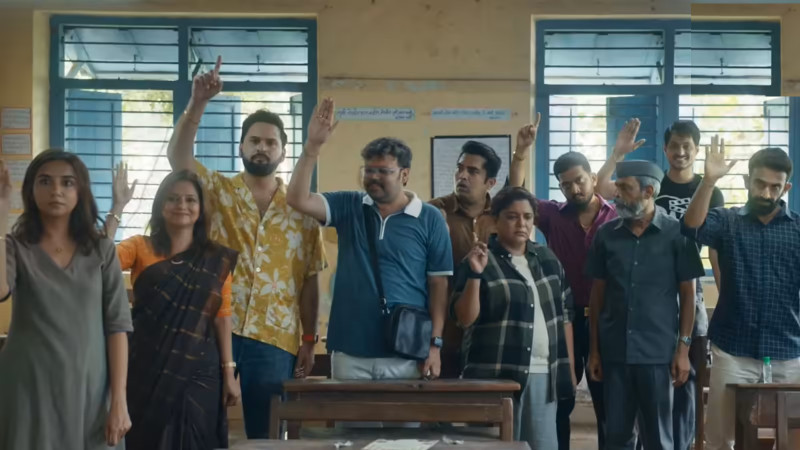
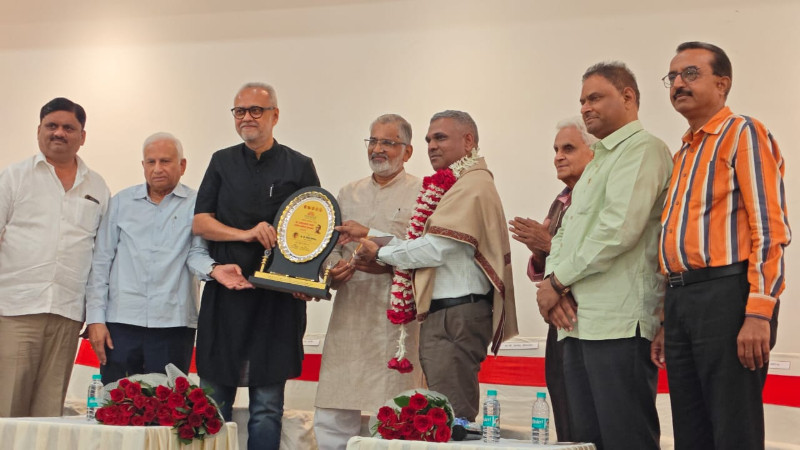
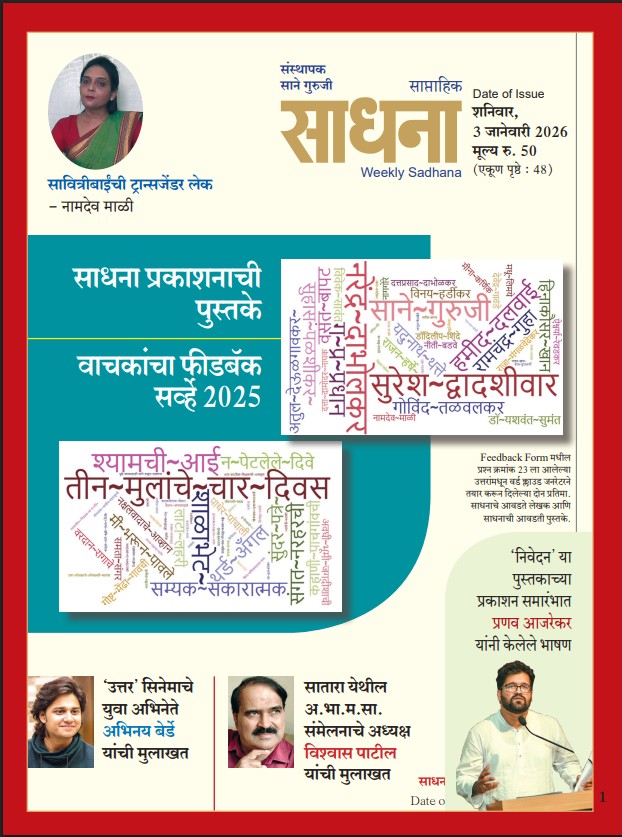













Add Comment